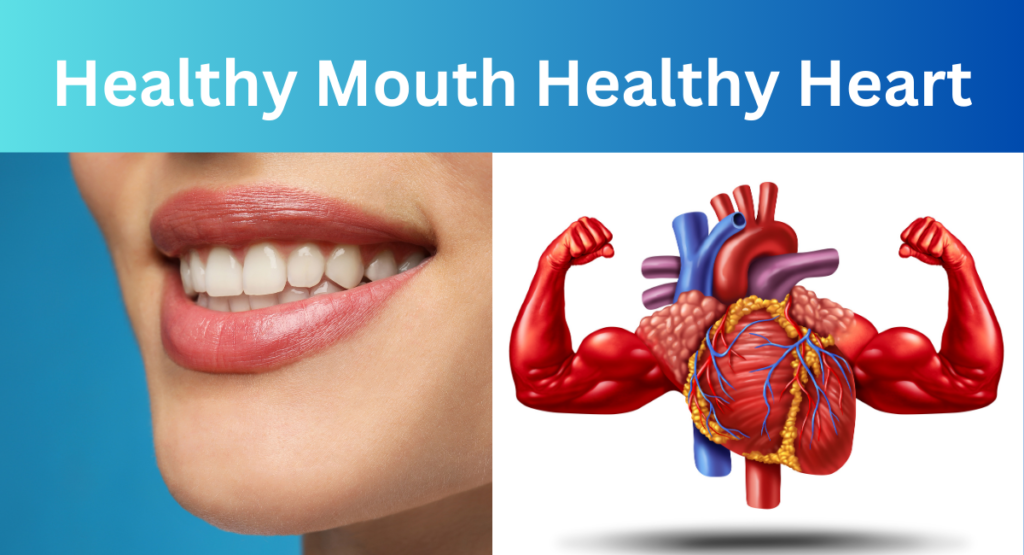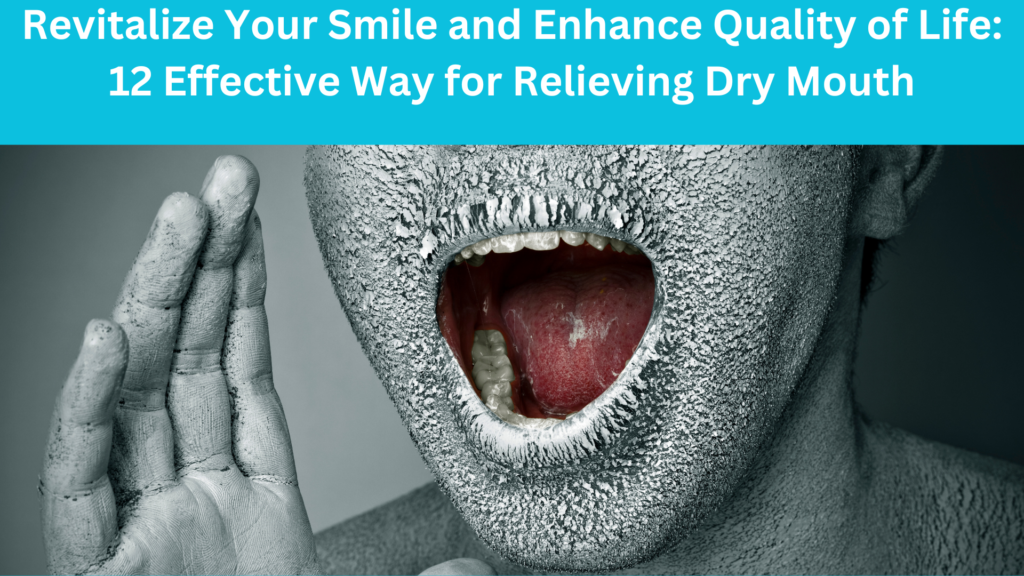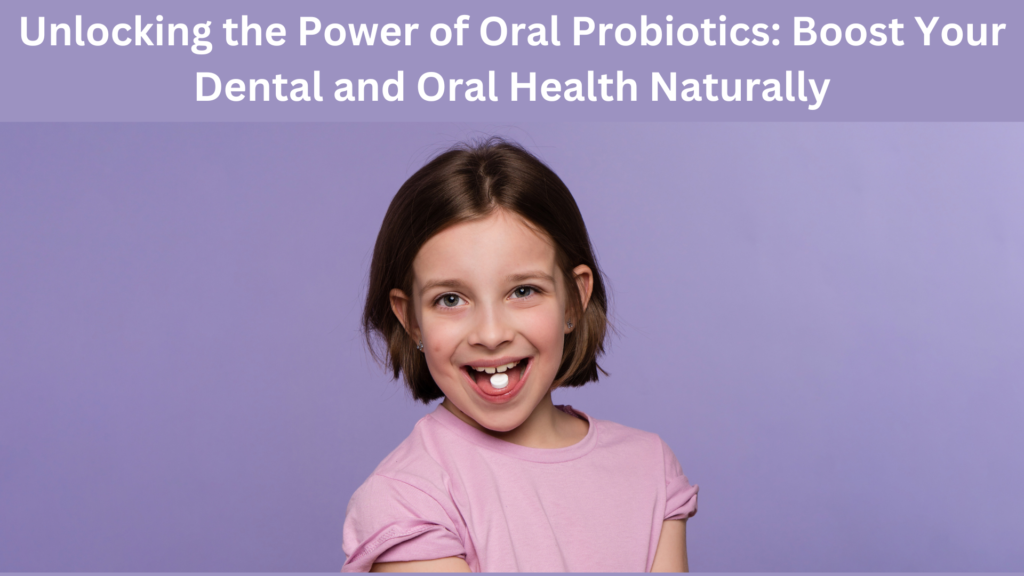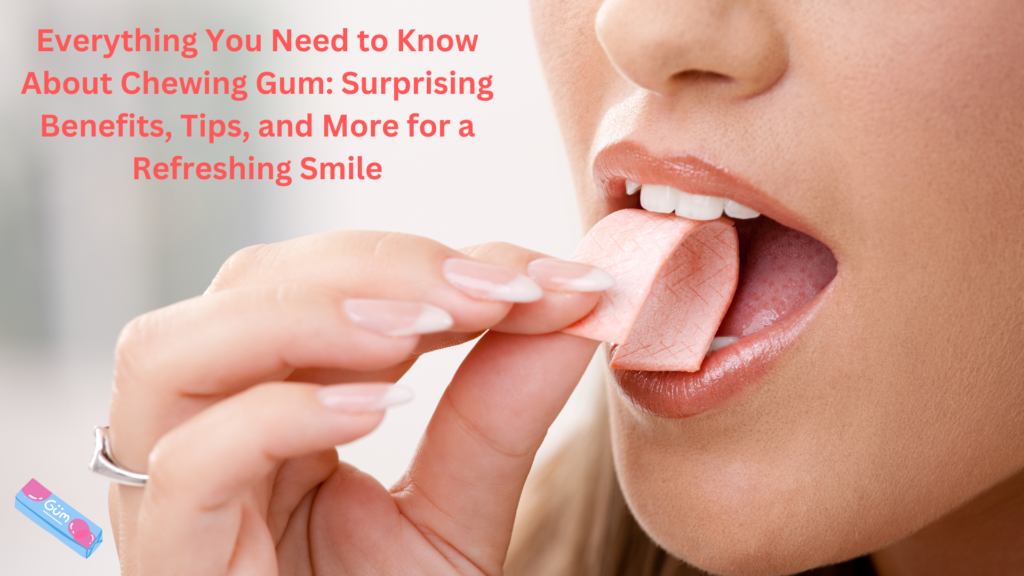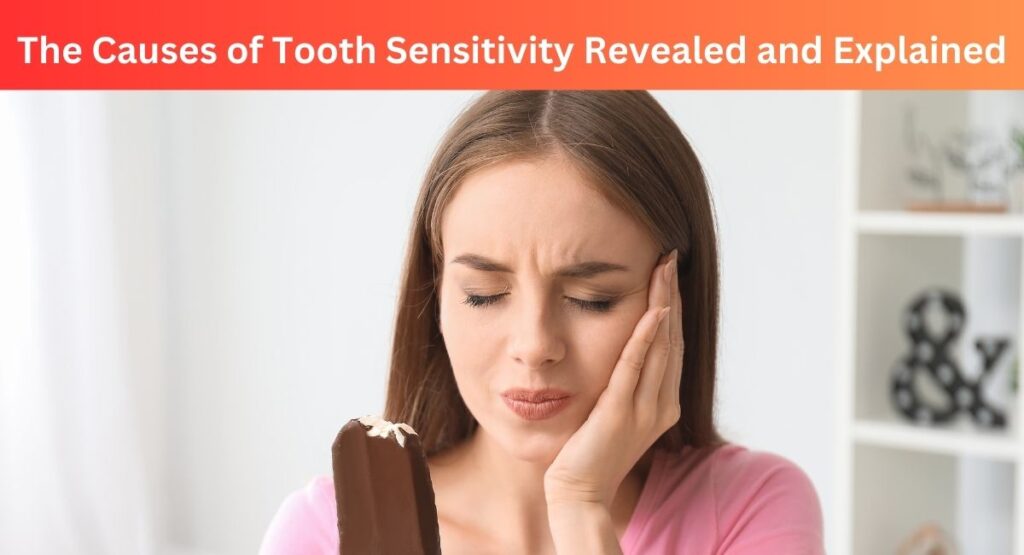
Causes of tooth sensitivity
Tooth sensitivity, a common dental woe affecting millions worldwide, can make simple activities like sipping a hot beverage or enjoying an ice cream cone an agonizing experience. This article meticulously unravels the intricate web of causes contributing to tooth sensitivity, shedding light on the factors that may leave you wincing in pain. If you’ve ever wondered about the root causes of tooth sensitivity, you’re not alone. Let’s embark on a journey to explore the various facets of this issue.
This article delves into the intricate web of causes that contribute to tooth sensitivity, shedding light on the factors that may leave you wincing in pain.
Understanding Tooth Sensitivity: Why It Happens
Tooth sensitivity happens when the outer layer of a tooth, either the enamel or cementum, gets worn down. This exposes the nerves in the dentin or pulp underneath. It’s essential to note that enamel and cementum don’t have nerves, but the dentin and pulp beneath them do.
Additionally, tooth sensitivity can occur when there is damage to the outer layer of the tooth due to decay, fractures, dislodged or worn fillings, or gum disease. This damage exposes the inner layers, such as the dentin or pulp, which contain nerves.
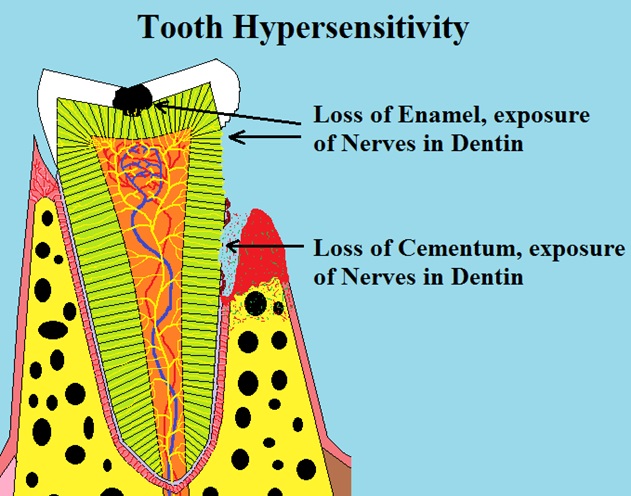
Damage to the Outer Layer Resulting in Exposure of Underlying Nerves
Common Triggers of Tooth Sensitivity
Tooth sensitivity can be triggered by various factors. Here are some of the most common culprits:
Cold or Hot Drinks and Foods:
Sudden pain or discomfort may arise when consuming hot or cold beverages and foods, a frequent trigger for tooth sensitivity.
Sweet or Acidic Foods and Beverages:
Sensitivity can be heightened by the consumption of sweet or acidic foods and beverages, impacting individuals with a tendency toward tooth sensitivity.
Cold Air:
Exposure to cold air, especially during winter or while breathing deeply, may trigger sensitivity in individuals with vulnerable teeth.
The presence of plaque, a thin film of microbes on the teeth, can contribute to tooth sensitivity. Effective oral hygiene is crucial to minimizing this trigger.
Understanding these common triggers is essential in managing and preventing tooth sensitivity.
Causes of Tooth Sensitivity: A Detailed Exploration
Tooth sensitivity is not a disease but a symptom of many dental problems. Tooth sensitivity manifests as sharp, temporary pain or discomfort in a tooth after exposure to certain stimuli, mainly cold or hot food or drink. It may be a temporary or chronic issue, and sensitivity may be present in one or many teeth.
The Impact of Brushing Habits
The most common cause of tooth sensitivity stems from the abrasion caused by forceful and faulty brushing techniques. Forceful and vigorous tooth-brushing, especially with long horizontal strokes, can lead to receding gums and wear down the enamel and cementum, particularly at the neck of your tooth because enamel and cementum there are paper-thin. This abrasive brushing technique often results in the exposure of the dentin or pulp beneath. Additionally, using a hard-bristled toothbrush, coupled with abrasive toothpowder or toothpaste with a high Relative Dentin Abrasivity (RDA), significantly contributes to this issue. It’s crucial to adopt a gentler brushing approach using a soft-bristled toothbrush and toothpaste with lower abrasiveness to protect your enamel and prevent the onset of tooth sensitivity.
Unveiling the Role of Receding Gums
Our teeth’s roots are safeguarded by gums, acting as natural protectors. However, when gums start to recede or when gum (periodontal) disease sets in, these protective layers can wear away, exposing the sensitive root areas. This exposure heightens sensitivity, especially to hot or cold stimuli.
Several factors contribute to this condition:
Brushing Techniques:
Aggressive and faulty brushing techniques, coupled with abrasive toothpaste, can wear down the gums, leading to sensitivity.
Tartar Deposition:
The buildup of tartar, a hardened form of plaque, can contribute to gum recession and heightened sensitivity. The buildup of tartar around your gum-line creates an environment conducive to plaque formation.
Dental plaque, a microbial film, releases acids that contribute to gum diseases, worsen gum recession, and damage cementum. Consequently, tartar buildup plays a role in aggravating sensitivity, making it crucial to address this issue for optimal oral health.
Periodontal disease, a condition affecting the gums and underlying bone, can lead to gum recession and increased tooth sensitivity.
Misaligned Teeth:
Teeth that are not correctly aligned can exert uneven pressure on the gums, contributing to recession and sensitivity.
Higher Soft Tissue Attachments:
Higher attachments of soft tissues can pull the gums down, exposing the sensitive roots and causing heightened sensitivity.
Understanding these factors is vital in preventing and managing tooth sensitivity related to receding gums. Adopting proper oral care practices and seeking professional guidance can play a crucial role in maintaining healthy gums and reducing sensitivity.
Unveiling the Impact of Outer Layer Erosion
The outer layer of our teeth, made up of enamel and cementum, serves as a protective shield. However, when this shield erodes, the underlying dentin becomes more vulnerable to external stimuli. This erosion can occur due to various factors:
Acidic Foods and Beverages:
Regular consumption of acidic foods, fruits, and beverages can contribute to the wearing away of enamel and cementum, exposing the dentin beneath.
Teeth Whitening Agents:
The excessive and frequent use of teeth whitening agents, such as whitening toothpaste, strips, or bleaching agents with chemicals, can result in the erosion of the outer layer.
Improper Dental Habits:
Failure to rinse your mouth after consuming acidic fruits or not drinking enough water after eating acidic foods and liquids can contribute to enamel and cementum erosion. Some people worsen the situation by brushing immediately after consuming acidic items, further wearing down the protective outer layer.
Gastro-Esophageal Reflux (GERD):
Stomach acid reaching the mouth due to conditions like GERD can lead to erosion, affecting the enamel and cementum.
Systemic Conditions:
Certain health conditions like anorexia nervosa, bulimia, and gastro-paresis, which involve frequent vomiting, can erode the enamel or cementum, exposing the dentin.
Pregnancy-Related Morning Sickness:
In pregnancy, morning sickness involving frequent vomiting can also contribute to the erosion of the outer tooth layer.
Understanding these factors and adopting preventive measures, such as minimizing acidic food intake and maintaining proper oral hygiene, can help protect the outer layer of teeth and reduce the risk of tooth sensitivity.
Tooth Decay
Cavities and decay can breach the protective layers of the tooth, exposing the nerves to external elements. Decay-related sensitivity is often a sign that the tooth requires immediate attention and treatment. Find out in our article on tooth decay what causes it and how to prevent it.
Bruxism (Teeth Grinding)
When you grind your teeth persistently, it can wear down the enamel, making your teeth more sensitive. The pressure from grinding can even cause tiny fractures in the teeth, making sensitivity worse. Bruxism can also lead to jaw pain and dysfunction.
Causes of Teeth Grinding
Stress-Induced Bruxism:
Stress is a common trigger for clenching and grinding teeth (bruxism). Elevated stress levels often result in this habit.
Neuromuscular Issues and Bruxism:
People with neuromuscular issues may experience bruxism, contributing to tooth sensitivity.
Sleep Disturbances and Bruxism:
Bruxism can occur during sleep, especially in individuals experiencing sleep disturbances.
Medical Issues and Bruxism:
Certain medical conditions can be associated with bruxism, further impacting tooth sensitivity.
Understanding these factors can help you take steps to manage stress and address underlying issues, reducing the impact of teeth grinding on your oral health.
Cracked or Chipped Teeth
Structural damage to teeth, whether due to injury or wear and tear, can expose the sensitive inner layers. Even hairline fractures can contribute to heightened sensitivity.
Dental Procedures
Certain dental procedures, such as dental filling, tooth whitening or extensive cleanings, may temporarily increase tooth sensitivity. This sensitivity typically subsides but can be a short-term concern.
Uncovering the Impact of Worn Fillings and Damaged Crowns
When a filling in your tooth wears down or an artificial crown becomes damaged, it can expose the inner layers of your tooth, like the dentin or pulp. This exposure is a common cause of sensitivity, making your tooth more vulnerable to discomfort. Understanding how these dental restorations can contribute to sensitivity is crucial for maintaining oral health.
Symptoms of Tooth Sensitivity
- Individuals experiencing tooth sensitivity may notice sharp, sudden pain when consuming hot, cold, sweet, or acidic foods and beverages.
- Discomfort during brushing or flossing, particularly at the gumline.
- Lingering pain after exposure to triggers.
Prevention and Precautions
- Gentle Brushing: Use a soft-bristled toothbrush and adopt a gentle brushing technique to avoid enamel erosion.
- Fluoride Toothpaste: Use fluoride toothpaste to strengthen enamel and reduce sensitivity.
- Regular Dental Check-ups: Schedule regular dental check-ups to address issues before they lead to sensitivity.
- Limit Acidic Foods: Minimize consumption of acidic foods and beverages to prevent enamel erosion.
Treatment Options
- Desensitizing Toothpaste: Specialized toothpaste can help block pain signals from reaching the nerves.
- Fluoride Gel or Varnish: In-office treatments that strengthen enamel and reduce sensitivity.
- Dental Procedures: Dental bonding, inlays, or crowns may be recommended to address structural issues causing sensitivity.
Conclusion
Understanding the myriad causes of tooth sensitivity is the first step towards effective management. By adopting preventive measures and seeking timely dental care, individuals can regain control over their oral health and enjoy a life free from the discomfort of tooth sensitivity.
Attempting to address sensitivity at home solely with desensitizing toothpaste may not be the most effective approach. Sensitivity is not a standalone problem; rather, it’s a symptom that can signal various underlying issues. It can act as an early or late alert for conditions like decay, tooth wear or fractures, gum diseases, and even certain medical conditions. Seeking advice from your oral healthcare professional is crucial.
Sensitivity is both preventable and treatable. However, it’s more important to identify and address the root cause rather than merely alleviating discomfort with commercial products. Consulting a professional ensures a comprehensive understanding of your oral health and a tailored approach to tackle sensitivity at its source.
Frequently Asked Questions (FAQs)
Q: Is tooth sensitivity a sign of a serious dental issue?
A: It can be an indicator of underlying dental problems, and timely consultation with a dentist is recommended.
Q: Can home remedies alleviate tooth sensitivity?
A: While certain practices, like using desensitizing toothpaste, may help, it’s crucial to consult a dentist for personalized advice.
Q: What are the common triggers for tooth sensitivity?
A: Tooth sensitivity can be triggered by factors such as hot or cold foods, acidic beverages, aggressive brushing, and underlying dental issues.
Q: Can teeth grinding lead to sensitivity?
A: Yes, persistent teeth grinding can wear down enamel and cause microfractures, leading to heightened sensitivity.
Q: How does receding gums contribute to tooth sensitivity?
A: Receding gums expose the sensitive tooth roots, often caused by factors like gum disease, aggressive brushing, or misaligned teeth, contributing to sensitivity.
Q: Is tooth sensitivity reversible?
A: The reversibility of tooth sensitivity depends on its cause. While some causes can be treated and sensitivity reduced, others may require ongoing management.
Q: Can dental procedures contribute to tooth sensitivity?
A: Yes, certain dental procedures like teeth whitening or extensive cleanings may temporarily increase tooth sensitivity, but it is usually a short-term concern.
Q: How does tartar buildup affect tooth sensitivity?
A: Tartar buildup contributes to plaque formation, releasing acids that can lead to gum diseases, aggravate gum recession, and damage the cementum, ultimately worsening sensitivity.



